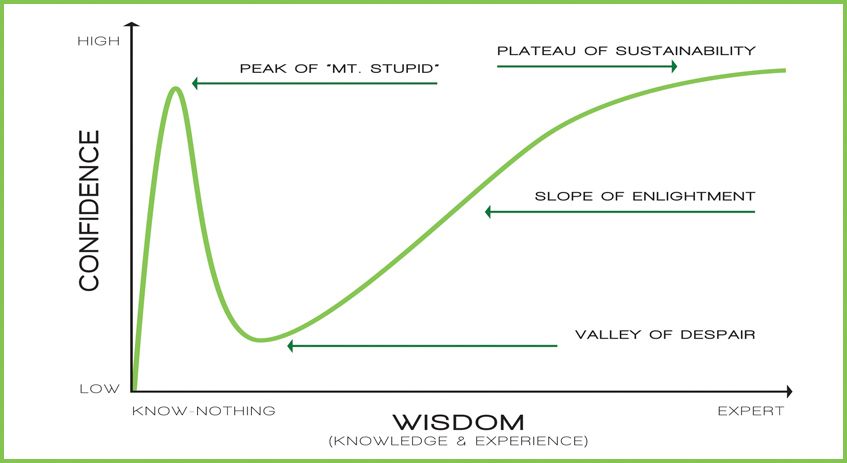Physical Address
304 North Cardinal St.
Dorchester Center, MA 02124
Physical Address
304 North Cardinal St.
Dorchester Center, MA 02124
What is the Dunning Kruger Effect? You must have come across people in your life who are incompetent or very much limited skill-wise but have the confidence to know it all. They can never go wrong and when someone points out that they are wrong, the blame is immediately shifted to other factors. On the other side of the coin, we have experts who still have self-doubts in their own capability and do not come across as confident as people half his skill level.
In psychology, this is termed as Dunning Kruger Effect. The Dunning Kruger Effect refers to the general tendency of poor performers to overestimate their abilities relative to other people and, to a lesser extent, for high performers to underestimate their abilities. The highly influential article was first published in the year 1999 in the journal of Personality and Social Psychology.

An obvious example of the Dunning Kruger effect in today’s world will be our Finance Minister Nirmala Sitharaman. Her confidence in policy matters or the financial background of the country is not supported by the facts and figures. Recently she proclaimed that the lower-middle-class family in Indian earns in the range of 6-18 lakh, which cannot be further from the ground reality. She had also earlier blamed the mindset of the millennials for the worst performance of the vehicle industry in decades.
Dunning Kruger effect is like a blind-spot in our brain. There is an age-old idiom in India which states the same – “Half knowledge is a dangerous thing”. When you start learning a new subject, you do not possess the required skills and experience to gauge how much you actually know about the subject and this may lead to overestimation of your own ability. A beginner may think he is closer to the average than he actually is.
Whereas an expert in the subject may have been doing the task for so long they forget what it’s like to be beginners or they’are good at the task, but not good at evaluating other people. They know that they are better than the rest but they make the same mistake and assume that they are closer to the average than they actually are.
You can test the effect yourself. If you take any new online classes (that include online test and assessments) or start a product that includes a walk through and show the expected results. If you achieve the results in a reasonable amount of time that are average or better, then you are probably “smart”. However, if you think the classes sound too easy and the tasks seems rival but you are unable to meet the expected result and fails in the task then you have a problem. Your problem may not be a lack of intelligence or being less smart but more of overconfidence and lack of motivation.
In conclusion, it may be said that people who are smart know their limitations and works accordingly. Stupid is not realizing where you have limitations and where you need to learn more. It is important for us to not overestimate our own skills and also not to undersell ourselves. A fine balance needs to be stuck between both.